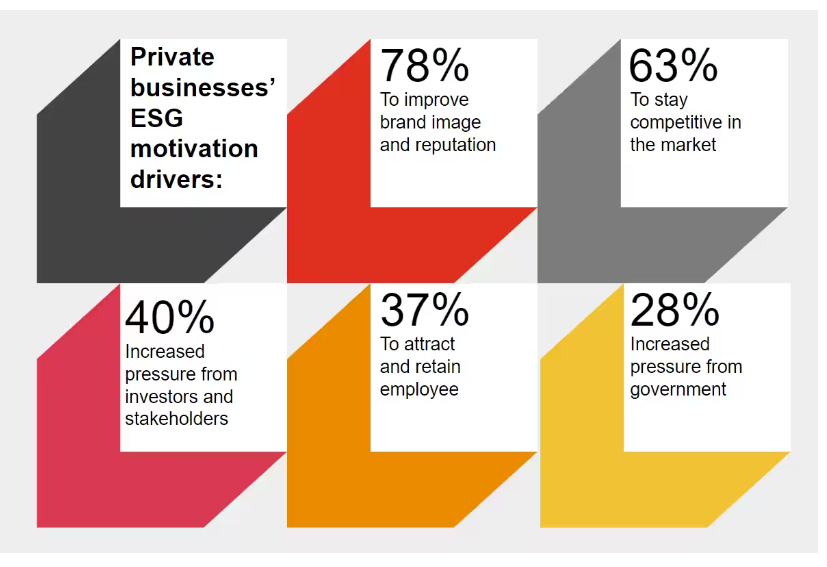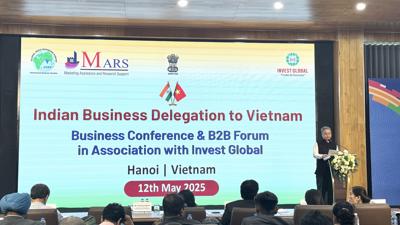PwC Vietnam: More action needed to promote ESG journey of private enterprises
Greater effort is needed among local private enterprises to commit to ESG matters.

Private Vietnamese enterprises have been promoting their environment, social, governance (ESG) journey but more is needed to overcome the challenges, according to the ESG Readiness of Private Businesses in Vietnam 2022/2023 report from PwC.
The report noted that 69 per cent of private enterprises in Vietnam have made ESG commitments or plan to do so between the next two to four years, while 31 per cent do not plan to make any commitments within that timeframe.
However, the report notes a lack of leadership in terms of ESG. Thirty-four per cent of private enterprises say their board is not involved in ESG matters, 48 per cent say there is no clear ESG leader within their organization, and 53 per cent say their ESG program is being run by a senior manager who has been designated to drive the agenda or program but is not fully dedicated to the concept. “This is an urgent call for business owners to take ownership of the ESG narrative and lead by example to create a sustainable and responsible business,” the report stated. “It also opens up opportunities for the Chief Financial Officer (CFO) to play a bigger role in implementing and reporting on ESG goals.”

Though private enterprises are making progress in sustainability and are staying abreast of listed corporations, many are not effectively communicating such efforts to the public. The current state of ESG governance and reporting in private Vietnamese enterprises suggests that there is a lot more to do in ESG reporting. Eighty-two per cent of private enterprises have no or limited external reporting on ESG matters.
In terms of the challenges private enterprises in Vietnam still face in their ESG commitment, 60 per cent said that they lack knowledge. However, upskilling is not top-of-mind for companies, as more than half have yet to consider training on ESG. Business leaders in Vietnam are also navigating the ongoing volatile economic landscape while also preparing their businesses for the future. This requires a balancing act between two competing priorities, referred to as the dual imperative, in order to succeed in the business world.
Therefore, the report suggested that private enterprises, particularly family-owned concerns, should prioritize ESG reporting. This is because it aligns with their values and provides an opportunity to showcase their achievements, which can differentiate them from the competition. While ESG reporting can be complex, they could start small by focusing on key ESG issues relevant to their industry and their stakeholders. “On ESG issues, it is time for private enterprises to make real changes, going beyond good intentions to create a practical plan that achieves tangible results,” the report noted.
In addition, private enterprises could also consider upskilling as a way to communicate ESG goals to build trust and transparency and align employees with organizational strategies. Upskilling can also empower employees to contribute to ESG goals and leverage multidisciplinary skills, combining technical and soft skills to drive progress towards ESG outcomes.
“To create value and address the disconnect between short-term pressures and long-term opportunities, enterprises must strike a balance between meeting short-term performance requirements and investing in longer-term ESG goals,” said Mr. Johnathan Ooi, Entrepreneur and Private Business (EPB) Leader at PwC Vietnam. “By defining a clear and convincing ESG path that aligns with short-term KPIs and meets investor expectations, enterprises can ensure their long-term success and avoid the significant costs of neglecting ESG initiatives.”







